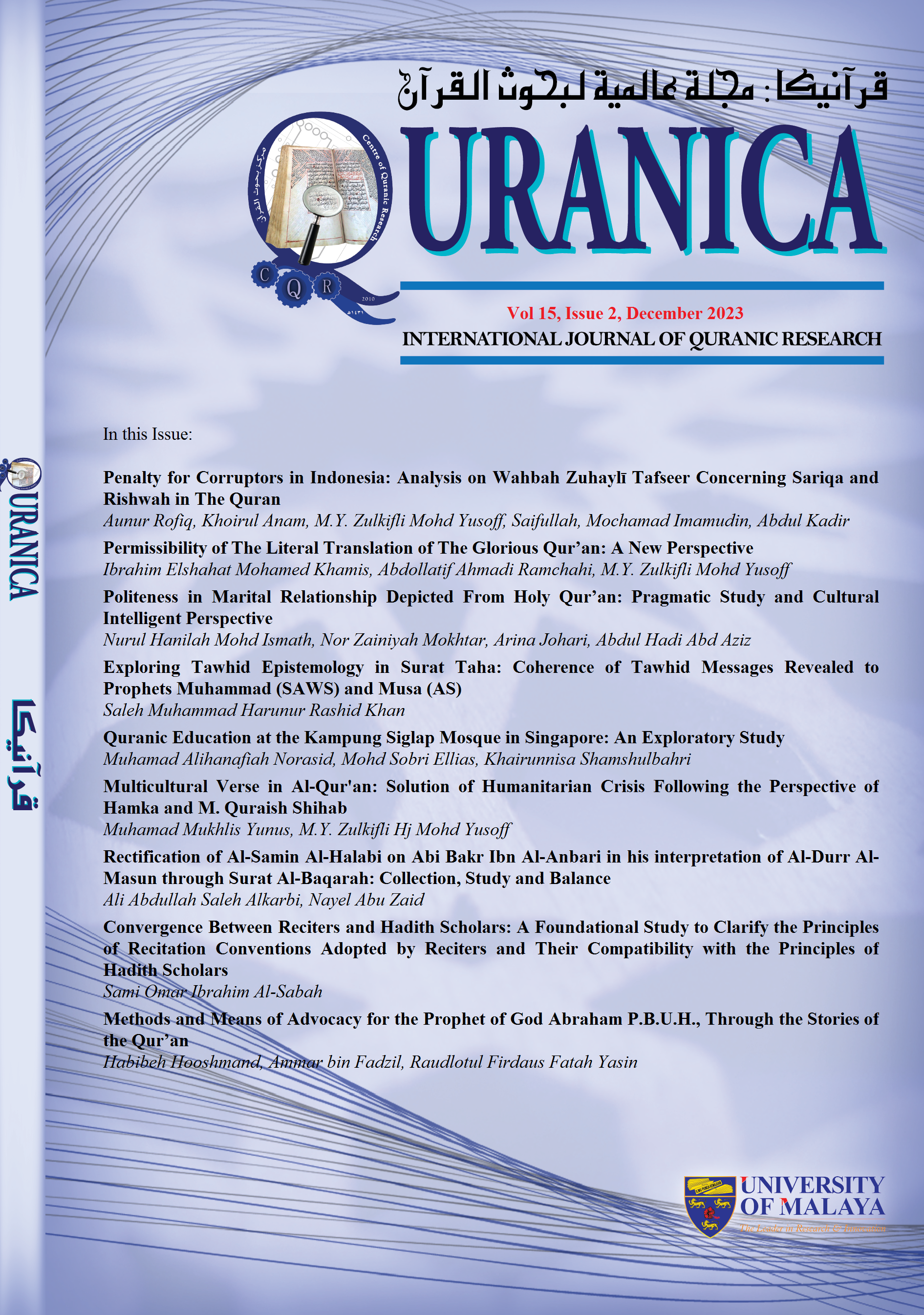Multicultural Verse in Al-Qur'an: Solution of Humanitarian Crisis Following the Perspective of Hamka and M. Quraish Shihab
Main Article Content
Abstract
The Qur'anic verses pertaining to multiculturalism provide guidance to humanity in addressing the challenges posed by conflicts stemming from a lack of understanding among society about the existence of cultural variety within the state and society. Naturally, every battle will lead to humanitarian crises like persecution, homicide, and so forth. The Muslims have learned how to handle conflicts from the teachings of the Quran, which is their source. As a result, it is crucial to include them in the grand scheme of human existence in order to achieve harmony and well-being amongst people from various cultural backgrounds in society. Many academics offer different equations and standards to accomplish this, such as HAMKA's and M. Quraish Shihab's explanations. Therefore, this paper aims to find out the comments of two prominent commentators through their two books of interpretation, namely al-Azhar and al-Misbah, as well as some sources related to both of them about the multicultural verses that contain the universal teachings of the Qur'an about humanity, explaining about A multicultural society that wants human life in a state of peace, peace and prosperity and explains cultural differences which is the will of the Creator which is not meant to divide people, but so that people can live side by side and respect each other. This paper uses qualitative methods and library research as data collection methods. Based on the explanation of the sentences with multicultural nuances done by the two figures, it was found that both of them have different approaches in achieving the goals contained in the multicultural sentences. HAMKA uses the approach of religious unity, while M. Quraish Shihab uses the approach of religious moderation.
Downloads
Article Details
Disclaimer
QURANICA makes every effort to ensure the accuracy of all its contents. However, opinions, discussions, views and recommendations are expressed in this journal do not necessarily reflect the official policy of QURANICA or views of its editors or publishers. Therefore, QURANICA and its publishers will not be liable for any controversy may be arisen. The journal reserves the right, at its sole discretion, to change its terms and conditions of publications.
Copyright
It is a condition of publication that manuscript submitted to the journal have not been published, accepted for publication, nor simultaneously submitted for publication elsewhere. By submitting a manuscript, the author(s) agrees that copyright for the article is transferred to the publisher, if and when the manuscript is accepted for publication.
